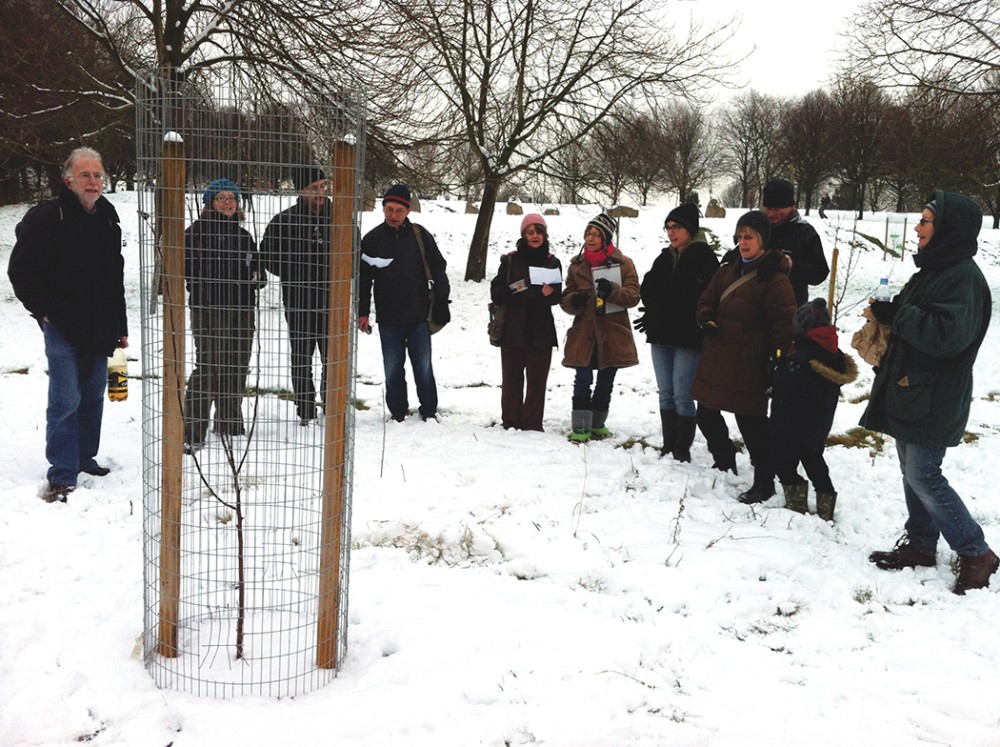Why we wassail
Each winter, my family goes to our orchard to carry out an ancient tradition.

The night was so cold that neither of our dogs dared leave their warm dens—even though they were certainly listening, and undoubtedly wondering what on earth the ragtag group of humans was up to out in the frigid midnight air. The answer, in a word: wassailing.
In addition to being the season of resolutions, January is the season of wassailing. In Europe and early America, Twelfth Night was the traditional night for wassailing.
But I’m getting ahead of myself. The truth is that I knew next to nothing about wassailing until two of my sisters got into the organic fruit growing business. Before that, my knowledge was limited to what I could glean from the 19th-century carol “Here We Come A-wassailing.”




